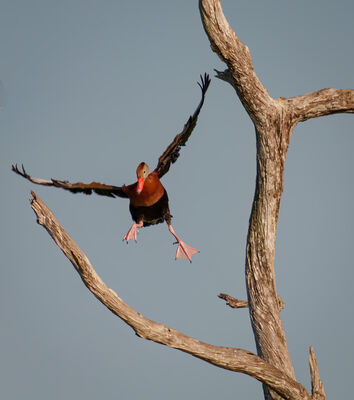Does changing the ISO alter the visible noise?
Mar 19, 2024 10:21:31 #
selmslie wrote:
We should already know that visible noise (signa... (show quote)
To me it seems intuitive and logical. Why should increasing the exposure in camera (raising the iso) result in any more or less noise than increasing the exposure in post-processing? Just like cropping in camera by using APS-C (DX) mode does not make a difference in overall sharpness compared to cropping in PP.
Mar 19, 2024 10:56:56 #
Rick from NY wrote:
Why is anyone bothering to engage with this guy? He knows he’s right and we are all physics 101 morons.
Are you speaking for yourself?
There are actually a lot of members here who are knowledgeable and well educated, engineers and scientists. They probably don't see any point in responding because it's unlikely that they would disagree with what I have posted.
I created the thread for the benefit of others who are curious enough to want to learn more.
Look in the mirror and ask yourself why you engaged?
Mar 19, 2024 11:03:39 #
bkwaters wrote:
To me it seems intuitive and logical. Why should increasing the exposure in camera (raising the iso) result in any more or less noise than increasing the exposure in post-processing? Just like cropping in camera by using APS-C (DX) mode does not make a difference in overall sharpness compared to cropping in PP.
The exposure was defined by the combination of shutter speed and aperture at the time the shutter was clicked.
The camera's ISO primarily determines the brightness of the camera's JPEG and the content of the raw file.
It's unfortunate that post processing software uses the term "Exposure" for the slider that has a similar effect on the apparent brightness of the image as the ISO did in the camera. It's a source of confusion that we all have to deal with.
Mar 19, 2024 11:12:31 #
User ID wrote:
Depends. On paper or in real world ?!?
And, acoarst, I did NOT read your essay and charts. I only noted its length and numerous charts. Youre just on the same old pointless fishing expedition as youre always on.
And, acoarst, I did NOT read your essay and charts. I only noted its length and numerous charts. Youre just on the same old pointless fishing expedition as youre always on.
=========================================================







Mar 19, 2024 11:13:09 #
Mar 19, 2024 11:13:14 #
Rick from NY
Loc: Sarasota FL
selmslie wrote:
Are you speaking for yourself?
There are actually a lot of members here who are knowledgeable and well educated, engineers and scientists. They probably don't see any point in responding because it's unlikely that they would disagree with what I have posted.
I created the thread for the benefit of others who are curious enough to want to learn more.
Look in the mirror and ask yourself why you engaged?
There are actually a lot of members here who are knowledgeable and well educated, engineers and scientists. They probably don't see any point in responding because it's unlikely that they would disagree with what I have posted.
I created the thread for the benefit of others who are curious enough to want to learn more.
Look in the mirror and ask yourself why you engaged?
I engaged because you’re is a troll trying to elicit clicks.
Mar 19, 2024 11:27:24 #
Rick from NY wrote:
I engaged because you’re is a troll trying to elicit clicks.
And you fell for it? What does that tell us about you?

Mar 19, 2024 14:29:58 #
selmslie wrote:
...What happens to noise when you move the Exposure slider to the right to brighten the image? With each stop added via the Exposure slider we increase the apparent brightness by one stop. But we also double the effect of shot noise and this lowers the visible SNR....
NO! When we increase ISO most of us either reduce aperture or exposure time. This decreases S/N ratio.
Mar 19, 2024 15:39:51 #
delder
Loc: Maryland
selmslie wrote:
The best way to deal with noise is to avoid it in the first place. That's easy to do if you do most of your photography in daylight. It's just a matter of getting a proper exposure.
The biggest mistake is to go looking for noise by viewing an image at 100% and then trying to fix something that nobody would have seen or cared about in a normal print or image.
The biggest mistake is to go looking for noise by viewing an image at 100% and then trying to fix something that nobody would have seen or cared about in a normal print or image.
Good old Sunlight is a Photographer's Friend. Especially from Behind.
Mar 19, 2024 15:47:20 #
PHRubin wrote:
NO! When we increase ISO most of us either reduce aperture or exposure time. This decreases S/N ratio.
That's what happens on the camera. When we increase the ISO we offset it by reducing the actual exposure. The S/N ratio in the raw file goes down.
But on the computer, the "Exposure" slider (not properly named) cannot actually change the original exposure. It amplifies what the raw file contains to brighten the image on your screen. As the brightness goes up the noise comes with it and becomes more visible.
Mar 19, 2024 16:52:38 #
The OP states that the best way to deal with noise is to avoid it in the first place.
And a good way to do that is to practice ETTR ....
Both are Good ideas, which virtually everyone reading this knows.
The other important thing is to add 'When Possible' to all these kinds of truisms.
Because the first order of business is find a picture worth taking, and take it by whatever means you have at your disposal.
Photography can be enjoyed on many levels. Some collect cameras, some pursue the latest and greatest, some enjoy the technical minutia and love charts graphs and standard deviation, Most look at the technical aspects of photography as something you need to learn just enough of, to get the results you want. You can get there via the academic approach we see in this post, or you can do it through the experience of taking pictures over time.
There is nothing wrong with any of those approaches if it brings you enjoyment.
The OP's approach was more necessary 20 years ago when Everyone was still figuring out how digital was different from film. But now, that's old news, and, any camera made in the last 5 years is a wonder of image capture, and the only reason Noise becomes a problem is when you find yourself in front of a great picture in horrible light, or you find it while carrying the wrong equipment. In either case you do the best you can to capture an image that gives you the best chance to get a real picture. And that's when practical experience and instinct take over.
This particular audience has a strong bias toward the 'practical' and most of us are of an age where we have settled intern approach. There is lots of knowledge here, and lots of good photographers.
People generally have little patience to listen to an overly technical description of stuff they already know. It feels like Sophistry.
And a good way to do that is to practice ETTR ....
Both are Good ideas, which virtually everyone reading this knows.
The other important thing is to add 'When Possible' to all these kinds of truisms.
Because the first order of business is find a picture worth taking, and take it by whatever means you have at your disposal.
Photography can be enjoyed on many levels. Some collect cameras, some pursue the latest and greatest, some enjoy the technical minutia and love charts graphs and standard deviation, Most look at the technical aspects of photography as something you need to learn just enough of, to get the results you want. You can get there via the academic approach we see in this post, or you can do it through the experience of taking pictures over time.
There is nothing wrong with any of those approaches if it brings you enjoyment.
The OP's approach was more necessary 20 years ago when Everyone was still figuring out how digital was different from film. But now, that's old news, and, any camera made in the last 5 years is a wonder of image capture, and the only reason Noise becomes a problem is when you find yourself in front of a great picture in horrible light, or you find it while carrying the wrong equipment. In either case you do the best you can to capture an image that gives you the best chance to get a real picture. And that's when practical experience and instinct take over.
This particular audience has a strong bias toward the 'practical' and most of us are of an age where we have settled intern approach. There is lots of knowledge here, and lots of good photographers.
People generally have little patience to listen to an overly technical description of stuff they already know. It feels like Sophistry.
Mar 19, 2024 17:05:59 #
delder wrote:
Good old Sunlight is a Photographer's Friend. Especially from Behind.
Formula for boring and ugly lighting.
Popular with Hawgsters on vacation.
Mar 19, 2024 17:09:12 #
MJPerini wrote:
... People generally have little patience to listen to an overly technical description of stuff they already know. It feels like Sophistry.
Too much information can be overwhelming. I hope it only feels like sophistry to some skeptics. There is no intent on my part to deceive anyone.
A lot of very well intentioned authorities have presented information on the topic of noise. It is occasionally incorrect.
The best practice would be to remember one of Regan's favorite Russian proverbs, "Trust but verify."
I hope I have included enough information so that anyone can replicate my tests and verify my conclusions using their own cameras.
Mar 19, 2024 17:11:13 #
selmslie wrote:
If it doesn't interest you, why bother to comment.
No interest in silly content but really amazed that you keep at it. Amazement naturally prompts commentary.
Mar 19, 2024 17:11:25 #
User ID wrote:
Formula for boring and ugly lighting.
Popular with Hawgsters on vacation.
Popular with Hawgsters on vacation.
User ID wrote:
No interest in silly content but really amazed that you keep at it. Amazement naturally prompts commentary.
You must find it fascinating. You are drawn like a moth to a flame.
Or are you just permanently on vacation?
If you want to reply, then register here. Registration is free and your account is created instantly, so you can post right away.



